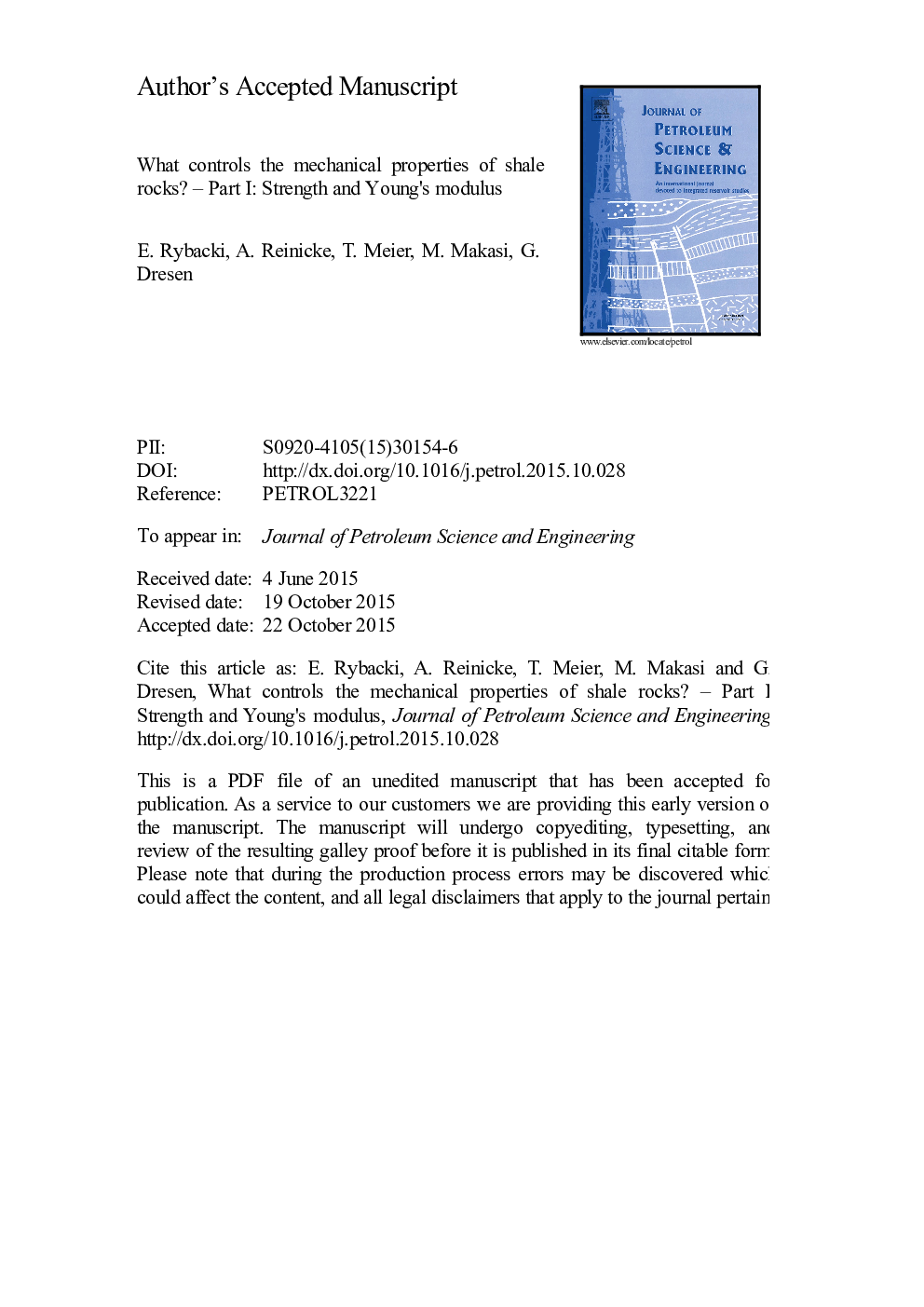| Article ID | Journal | Published Year | Pages | File Type |
|---|---|---|---|---|
| 8126529 | Journal of Petroleum Science and Engineering | 2015 | 69 Pages |
Abstract
We performed mechanical tests on several, mainly European black shales with different mineralogical composition, porosity and maturity. The uniaxial and triaxial compressive strength, tensile strength and static Young's modulus were measured at varying confining pressures, temperatures and strain rates. Mechanical properties such as compressive strength and elastic moduli strongly depend on shale composition, porosity and water content, as well as pressure (P) and temperature (T) conditions, but less on strain rate. The shales are orthotropic as strength and elastic properties vary with bedding orientation to the loading direction. We found a transition from brittle to semibrittle deformation at high P-T conditions, in particular for high-porosity shales. In the predominantly brittle regime up to about 100Â MPa pressure, the compressive strength increases non-linearly with increasing pressure and correlates almost linearly with Young's modulus. The internal friction coefficients vary substantially between â0.2 and 1.1 for the investigated shales. The effect of strain rate and temperature on peak strength can be described by a power or exponential law constitutive equation with a strain rate sensitivity typical for brittle rocks and a temperature sensitivity inferring to dislocation glide of clay minerals. Ignoring the influence of water and structural anisotropy, at given P-T conditions the variation of compressive strength and Young's modulus with composition for a specific shale formation may be roughly estimated from the volumetric proportion of all constituents and pores using a generalized mixture rule (GMR) approach. In contrast, this model cannot be used to approximate the tensile strength.
Related Topics
Physical Sciences and Engineering
Earth and Planetary Sciences
Economic Geology
Authors
E. Rybacki, A. Reinicke, T. Meier, M. Makasi, G. Dresen,
